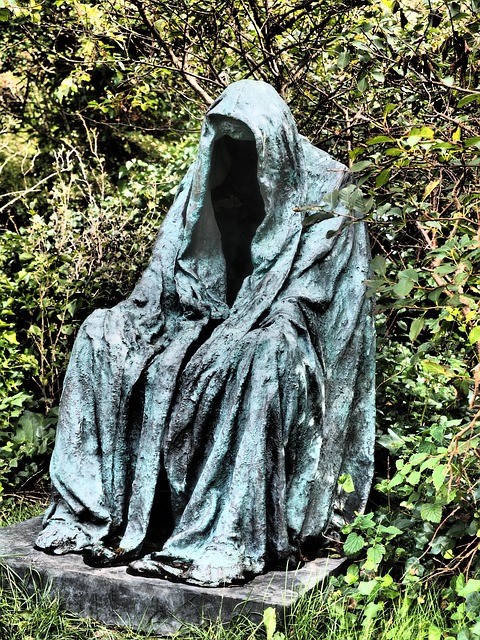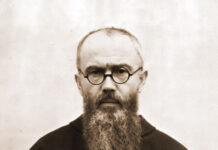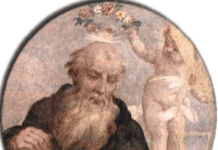“If a man has made up his mind that a certain wrong course is the right one, the more he follows his conscience, the more hopeless he is as a wrongdoer. One is pretty far gone in an evil way when one serves the devil conscientiously.” H.C. Trumbull
Any treatment of conscience should begin with a treatment of law, because conscience exists in all of us to determine whether we should obey the law that is before us.
The sources of law are diverse: public law, physical law, law of chance, etc. But as to moral principles, there are several kinds of law: public law, which should derive from the laws dictated by God, not least the natural law “in our hearts” planted there by God Himself. Our moral guidance is rooted in the recognition that the commands of conscience spring both from natural reason (law in the heart) and divine law (revealed through Scripture and the Church). These two sources should not contradict each other because truth cannot contradict itself.
As to both kinds of law, Scripture and natural law become our source. The commandments passed down by Moses and Jesus, formalized in the Judaeo-Christian tradition and continually affirmed by the Roman Catholic Church, are a summary of the natural law which St. Paul recognized, when he said in Romans 2:12:
All who sin outside the law will also perish without reference to it, and all who sin under the law will be judged in accordance with it. For it is not those who hear the law who are just in the sight of God; rather, those who observe the law will be justified. For when the Gentiles who do not have the law by nature observe the prescriptions of the law, they are a law for themselves even though they do not have the law. They show that the demands of the law are written in their hearts.
Conscience might simply be described as the voice of inner moral wisdom which guides us to discern, according to divine and natural law, what we ought to do and what we ought not to do in any given instant of being required to choose. Every human being is endowed with a conscience. Even atheists acknowledge this, but they deny that conscience is endowed by God. For them, moral relativism might well be preferred to the recognition of objective good and evil. This, of course, is a recipe for widespread anarchistic immorality, which is what the “free-to-be-me” libertarians so often seem to prefer.
Since no one denies that conscience exists, though it might be difficult to discern in a lunatic, the only matter yet to settle is how conscience is formed, and what reason we have to believe that one way of forming a conscience is better than any other way.
There is in all human beings a sense of innocence and of guilt. When we are innocent, we know we have nothing to fear or to regret. But if we are guilty, we may both fear and regret the consequences of our actions. This suggests that to some degree conscience is a natural formation within us all. But how is it formed? Does God or Nature form our conscience? Do others (authority figures) form our conscience? Do we form our own conscience? As to the last option, it seems impossible and irrational, because then the moral glue that is supposed to hold society in an ordered and peaceful state would lose its holding power. The right to choose evil over good would inevitably rise up and assert itself against, and possibly overcome, the right to choose good over evil.
Psychologists will point out that those who influence us in our youth are the leading forgers of conscience. For example, it is a notable fact that children whose parents do not teach them moral principles, or demonstrate to them the consequences of good and bad behavior, will have more behavioral problems than children who are educated and disciplined in these matters. Certainly it stands to reason that children who are educated in a religious environment will have advantages that others do not. Of course being educated to build a conscience is no guarantee that people will be virtuous. But it is a guarantee that they will have no excuse for saying they did not know the difference between right and wrong as taught by their religion.
Some people will rebel against the conscience that has been forming inside them since childhood. As Archbishop Fulton Sheen pointed out in Peace of Soul: “The voice of conscience can be stilled in four ways: by killing it, by denying it, by drowning it, and by fleeing from it.” We can all identify with Sheen’s analysis. We have all tried at one time or another to kill, deny, drown, or flee from our own conscience. Every one of our sinful thoughts or deeds proves that.
A classic example of denying the conscience we were given by God and nature is to say something as silly as this: “No matter what you have been taught, follow the voice of your conscience.” Usually when we hear something like this, it means that somebody wants us to believe that something wrong is really right. For example, we are told that we would be violating our conscience if we denied a woman the right to follow her conscience when it is telling her that she has the right to kill her unborn child. Likewise, we are violating our conscience if we defend a physician’s right to kill an unborn child. It is in instances like these two, the mother’s and the physician’s, that other people’s rights are wrongly defended as absolute.
After all, we are told, we live in America, the land of the free; we have no right whatever, and should be ashamed of ourselves, liberals will say, to insist on the right of the child not to be slaughtered in its mother’s womb. Catholics who agree to adopt this type of reasoning put the formation of their conscience not under the authority of God and the Church, nor under the authority of natural reason, but rather under the authority of Planned Parenthood, or the ACLU, or some other dysfunctional club that advocates the absolute rights of evildoers whom we are expected to honor.
Those who submit to this kind of propaganda against the formation of true conscience ought to remember Chesterton’s remark: “One is tempted to say that a man who has not got a troubled conscience is in danger of having no conscience to be troubled.” Now he who kills babies for a living may have no troubled conscience, but only for a while. Sooner or later he is likely to find that no matter how fast he flees, his conscience will catch up with him. No true Christian kills an unborn child; but many an abortionist, whose conscience has finally caught up with him, has abandoned the killing fields because he finally gets it, the most sublime moral teaching of Jesus, or its corollary: we should not do to others, abort them, what we would not have had others do to us in the womb.
What Others Have Said.
“No hell like a bad conscience.” John Crowne
“It is astonishing how soon conscience begins to unravel if a single stitch drops – One single sin indulged in makes a hole you could put your head through.” Charles Buxton
“The church is the only conscience the government has. When the church is silent, the state can have no conscience.” Edward W. Grant












